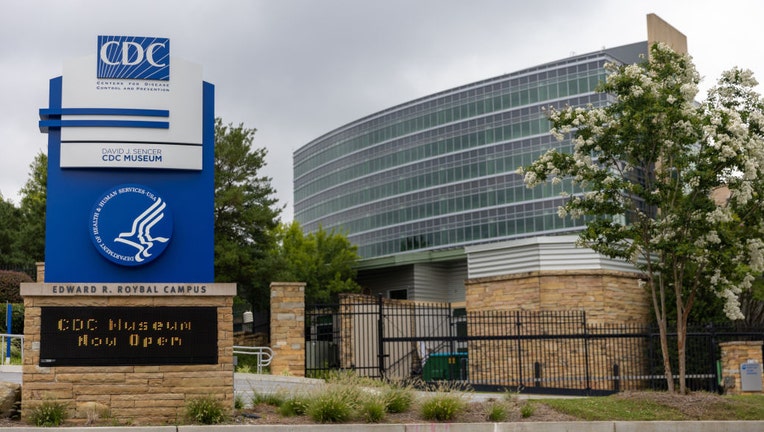What is Parvovirus B19? CDC warns 'slapped cheek' disease on the rise

FILE-A general view of the Center for Disease Control headquarters is seen in Atlanta, Georgia. (Photo by Nathan Posner/Anadolu Agency via Getty Images)
Health officials are warning the public about a transmissible virus that poses a risk for pregnant women, people with weakened immune systems, and individuals with blood disorders, according to the Centers for Disease Control and Prevention.
What is Parvovirus B19?
Parvovirus B19 is a seasonal respiratory virus that is transmitted through respiratory droplets by people with symptomatic or asymptomatic infection.
Parvovirus B19 infection is also called "slapped cheek" disease or known as the "fifth disease" and can develop as a rash and usually appears a few days after the fever or flu-like symptoms. It is more common in children than adults, per the CDC.
Are there parvovirus B19 cases in the U.S.?
According to the CDC, there is no routine surveillance for parvovirus B19 in the U.S., but health offiicials have received reports indicating a rise in parvovirus B19 activity in the nation.
A CDC health advisory explains that the proportion of people who tested positive for antibodies, an indicator of recent infection, rose across all age groups, from less than 3% having immunity from 2022 to earlier in 2024, to 10% of people in June. The greatest increase in cases has been among children ages 5 to 9.
What are the symptoms of parvovirus B19?
Symptoms associated with parvovirus B19 are typically mild and may include fever, headache, cough, sore throat, rashes, and joint pain. The CDC notes that common signs of the disease can be a fever or flu-like symptoms followed by a reddish "slapped cheek" rash in children. Adults can develop painful and swollen joints that usually last a few weeks.
A pregnant woman infected with parvovirus B19 could spread the virus to her baby, and it may cause a slight increase in the risk of a miscarriage.
People at greater risk for parvovirus B19 include those with leukemia or other cancers, organ transplant recipients, individuals with HIV, and blood disorders like sickle cell disease and thalassemia.
Is there a vaccine for parvovirus B19?
There is not a vaccine to prevent parvovirus B19, but the CDC says people can lower their chances of infection by covering their mouth and nose when coughing or sneezing, washing their hands and cleaning frequently touched surfaces, and wearing a mask when around others.

